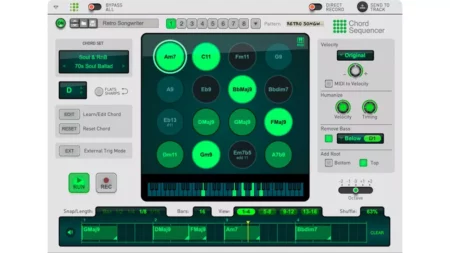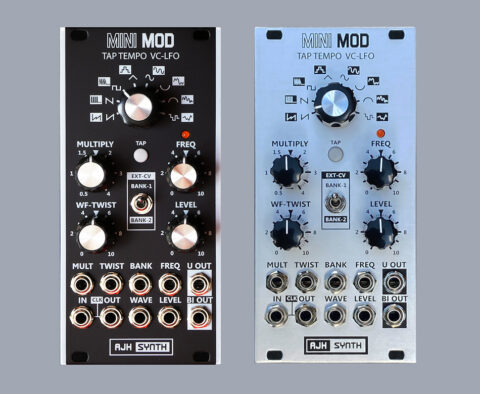New Reason’s MIDI Chord Sequencer, “The Fastest Way to New Chords”, Instant Chord Progressions
Reason’s new MIDI Chord Sequencer could fill the gaps in your music theory knowledge and help you find chords you have never even heard of
Reason Studios has introduced a harmonic helper in the shape of Chord Sequencer. The Chord Sequencer promising to be “the fastest way to new chords”, this new MIDI Player device could point you in the direction of “things your fingers may not naturally gravitate towards”.
Just up load Chord Sequencer and you can immediately start exploring the built-in Chord Sets. Themed according to style (jazz, pop, EDM, classical, etc), each Set contains 16 curated chords. You get more than 50 Chord Sets, and they contain more than 900 chords.
Colour-coded interface lets you play it safe or make bolder choices – the clever bit is that, when you play a chord, the other ones in the set light up in different shades of green to indicate which are the most natural fit to come next. So, you can either play it safe or take a chance on something a little more adventurous.
Rest assured Chord Sequencer is not writing your song for you, as you can edit the chords and add new ones, so you retain a strong degree of creative control.
Additionally, there is a learning element as well; each chord is labelled according to standard music theory conventions, so you will discover what all those augmented and diminished chords you have been hearing about actually sound like.
As befits the software’s name, there’s also a built-in sequencer that enables you to put your progressions together.
Chord Sequencer works with any instrument in the Reason rack, or if you are using Reason as a plugin in another DAW, any instrument you have in there. Reason+ subscribers can start using it immediately.
Cord Sequencer is also available to buy on its own for the introductory price of $49/£48/€54 , regular price $69/£64/€74, as of 13 July.
Find out more on the Reason Studios website



